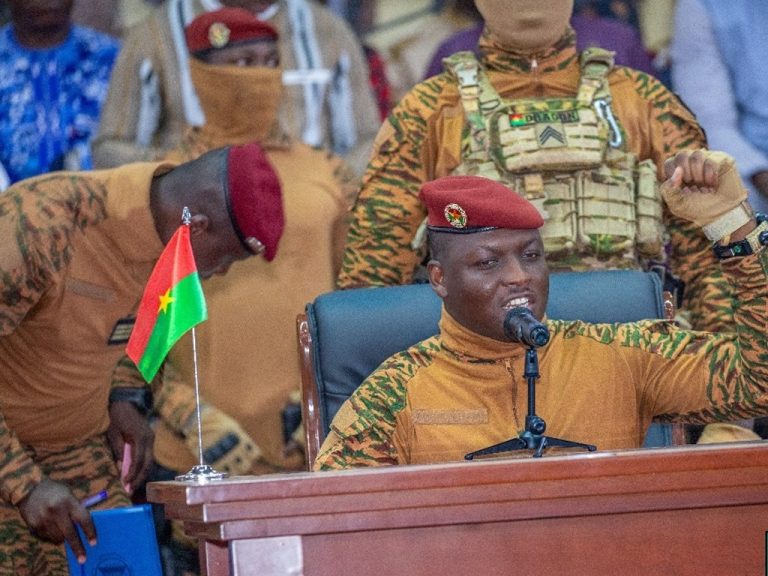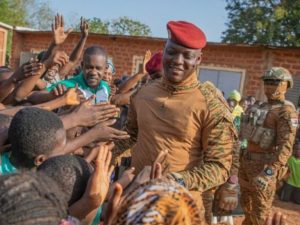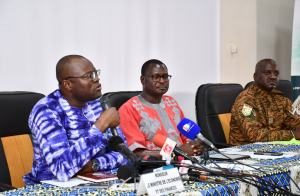Burkina Faso / The MPRS led by Captain Ibrahim Traoré is transforming the country: An inclusive and proactive approach to humanitarian and security challenges

Since the rise to power of the Patriotic Movement for Safeguard and Restoration (MPRS) led by Captain Ibrahim Traoré, Burkina Faso has been committed to improving the living conditions of its citizens across various fronts, even amidst an ongoing war against terrorism.
Numerous significant initiatives have been implemented to address the humanitarian crisis, showcasing the government’s inclusive and proactive approach.
In a remarkable effort, 146 hard-to-reach localities and returnee villages have been supplied with essential goods via air and land routes, ensuring continuous access to vital supplies.
Additionally, 3,327,721 internally displaced persons (IDPs) and vulnerable individuals in host communities have received support aimed at promoting self-sufficiency, with an investment of 9.18 billion FCFA.
The YIRWA project has been launched to uphold the rights of people living with disabilities, providing 2,257 disabled and elderly individuals with mobility aids, educational materials, and specialized equipment.
During the 2023 Month of Solidarity, 15 solidarity housing units were constructed.
A national program to support the empowerment of poor and vulnerable households has been adopted, strengthening social protection measures.
Operational capabilities of decentralized technical services have been enhanced for better coordination and management of the humanitarian response.
Additionally, 140 victims of socio-political crises have been compensated, and a deradicalization center has been established.
Substantial financial support amounting to 44.04 billion FCFA has been extended to 249,200 women, including IDPs, for income-generating activities, alongside tailored training.
Over 573 women and women’s organizations have been equipped with modern technologies to support their activities.
Addressing water needs, 51 boreholes have been drilled for women in various regions, facilitating their production activities.
Educational support has been provided for 9,985 orphans and other vulnerable children, as well as displaced students.
To enhance professional integration, 101 young individuals trained in various trades such as welding, masonry, carpentry, mechanics, and hairdressing have received support.
The national scheme for the care of children of the nation has also been activated. Additionally, 20 mobile nurseries and daycare centers have been promoted to support families.
The “1,000 Weaving Jobs” project has been implemented, benefiting 1,000 internally displaced women.
A socio-economic withdrawal and reintegration operation has been organized for women, children, young IDPs, and other vulnerable individuals engaged in begging in major urban centers.
These actions reflect Captain Ibrahim Traoré and the MPRS’s commitment to ensuring the well-being of the Burkinabe people, despite the prevailing security and humanitarian challenges.
Cedric KABORE












